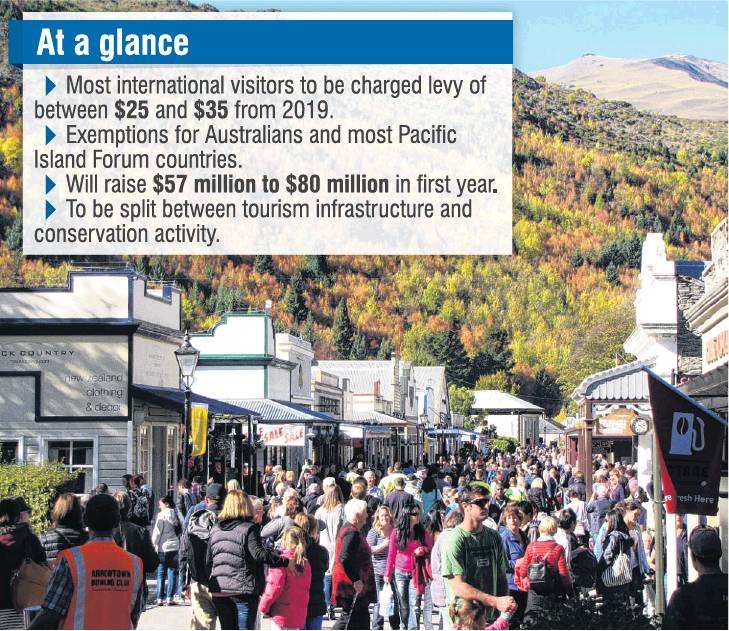
Queenstown’s Jim Boult says it will raise nowhere enough for the town that has been swamped under the tourism boom. He has repeated calls for a bed tax that would deliver money more directly to the community.
But mayors of districts with a big tourist load and a much smaller accommodation industry have supported the Government’s move.
Tourism Minister Kelvin Davis yesterday announced plans for a levy on international visitors to help ease the cost to communities for tourism-related infrastructure.
Rapid growth in the industry — international visitor arrivals are expected to reach 5.1 million by 2024 — meant many regions urgently need improved infrastructure, from toilet facilities to car parks.
Mr Boult yesterday described the levy as "disappointing".
"I’ve said all along I thought a border levy is the wrong way to go.
"A bed tax is a far more equitable and effective solution to the issue."Mr Boult said if 50% of the $57 million to $80 million expected to be raised annually went to conservation, that left $40 million at most for the whole of New Zealand to address infrastructure issues.
"We need that amount on our own. By the time everybody gets their equitable share I suspect it will be a very small amount of money that comes to us, and does not go anywhere near addressing the issue."
Mr Boult said he would continue to lobby the Government for a bed tax.
Mr Davis responded yesterday any possible introduction of a bed tax was outside his area of ministerial responsibility.
However, Mr Davis did not rule out the possibility.
Mr Boult was backed up to an extent by acting Dunedin deputy mayor David Benson-Pope.
Cr Benson-Pope said the visitor tax was long overdue, and "a really good start", but a bed tax should be brought in, too.
"Clearly, that will put funds into specific communities, the ones that are facing the pressure.
"I think we will need to do both."
Waitaki Mayor Gary Kircher said his council supported the idea of a visitor levy.
"It’s pretty much exactly what we’ve been asking for."
Mr Kircher said the tourism infrastructure fund, which provides up to $25 million a year for tourism-related infrastructure, had helped with capital costs of infrastructure, but operational costs still needed to be paid for.
Those costs disproportionately hit districts like Waitaki, which had plenty of tourists, but not as many bed nights as somewhere like Queenstown.
Central Otago Mayor Tim Cadogan said his area had high tourist numbers but a smaller hotel industry, so "a bed tax doesn’t really work for us".
A visitor levy was better for his district, though "the devil’s going to be in the detail" in terms of how it was distributed.
"The border levy is just one tool in the kit. It’s not the magic bullet that’s going to solve all our problems."
Clutha Mayor Bryan Cadogan described the levy as "a step in the right direction".
But he said his district had big issues with a "fledgling tourism industry" that could not support required infrastructure.
He also said the devil would be in the detail regarding how the money was distributed.
"If it’s focused on the main centres it would be a tragedy."
Southland Mayor Gary Tong said tourism had a "very, very intense" effect, from Fiordland to Stewart Island through the rest of the district.
He supported the levy, but planned to wait and see what came to his region.
Comments
$100 visitors tax. That's very little in American dollars or pounds. Tourists would still come. $100 to enter a country is nothing and is not even a consideration when people are deciding on countries to holiday in. Bed tax isn't fair on small towns who get used heavily but not "slept" in.











